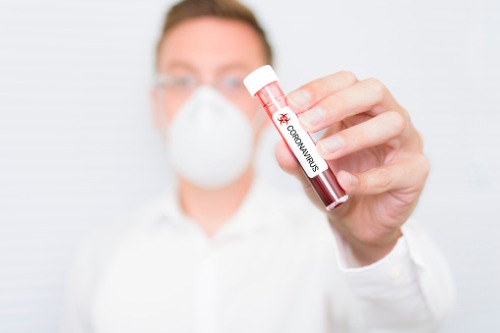

nib has withdrawn its market guidance due to the “uncertainty and volatility” brought about by the COVID-19 threat, which the private health insurer expects will significantly impact the private health insurance industry and its business in the near term.
nib said the COVID-19 crisis would most likely result in a significant drop in hospital claims, as more members avoid or delay discretionary treatment.
The insurer said PHI claims in Australia and New Zealand were more “heavily skewed” towards discretionary (or elective) treatment than the public system, with 94% of the 4.5 million private-hospital admissions in the 2018 financial year being elective or planned.
“nib calculates that for every 1% drop in hospitalisation for the remainder of 2020 (i.e. 9 months), arhi [Australian Residents Health Insurance] claims expense (including risk equalisation) would fall by $8.8 million and a 1% drop in dental treatment would reduce claims expense by $3.5 million,” said Steve Crane, nib chairman, in a letter to shareholders. “As hospital admissions increase for COVID-19-related illness, nib does face some additional claims exposure. Subject to their cover we anticipate claims for ‘lung and heart’ treatment. However, this is expected to be minor relative to what we anticipate occurring with the diminution of elective treatment.”
nib also reported strong sales and retention in its arhi business and NZ residents businesses, with net growth year to date (YTD) remaining ahead of budget, due likely to heightened concern about COVID-19 and disease risk. It is targeting a growth rate of 1% to 2% in Australia and NZ, despite high risk of economic recession and increased numbers of unemployed in both markets.
nib Travel insurance (travel) sales, meanwhile, posted a below-budget YTD and are expected to be severely damaged in the months ahead by extreme travel restrictions.
As for nib’s joint ventures in China and Honeysuckle, the insurer expects these businesses “will be enhanced by heightened awareness of health and disease risk.”
“Longer term assumptions around COVID-19 are, of course, much more problematic,” Crane said. “While we all hope the crisis will pass quickly and market conditions repair, the timing is extremely unpredictable. And macroeconomic consequences, shifts in consumer behaviour, government policy responses and a range of other factors could impact the PHI market and nib permanently (including in a positive way). As such, we have not attempted to form any assumptions beyond the near term other than that nib will emerge from the COVID-19 crisis in good shape and as full in ambition as we’ve ever been. The fundamentals in both Australia and New Zealand of an ageing population, growing healthcare spending and stress on public healthcare delivery and financing gives us confidence to assume an increased reliance on the private healthcare system in the longer term.”
has withdrawn its market guidance due to the “uncertainty and volatility” brought about by the COVID-19 threat, which the private health insurer expects will significantly impact the private health insurance industry and its business in the near term.
nib said the COVID-19 crisis would most likely result in a significant drop in hospital claims, as more members avoid or delay discretionary treatment.
The insurer said PHI claims in Australia and New Zealand were more “heavily skewed” towards discretionary (or elective) treatment than the public system, with 94% of the 4.5 million private-hospital admissions in the 2018 financial year being elective or planned.
“nib calculates that for every 1% drop in hospitalisation for the remainder of 2020 (i.e. 9 months), arhi [Australian Residents Health Insurance] claims expense (including risk equalisation) would fall by $8.8 million and a 1% drop in dental treatment would reduce claims expense by $3.5 million,” said Steve Crane, nib chairman, in a letter to shareholders. “As hospital admissions increase for COVID-19-related illness, nib does face some additional claims exposure. Subject to their cover we anticipate claims for ‘lung and heart’ treatment. However, this is expected to be minor relative to what we anticipate occurring with the diminution of elective treatment.”
nib also reported strong sales and retention in its arhi business and NZ residents businesses, with net growth year to date (YTD) remaining ahead of budget, due likely to heightened concern about COVID-19 and disease risk. It is targeting a growth rate of 1% to 2% in Australia and NZ, despite high risk of economic recession and increased numbers of unemployed in both markets.
nib Travel insurance (travel) sales, meanwhile, posted a below-budget YTD and are expected to be severely damaged in the months ahead by extreme travel restrictions.
As for nib’s joint ventures in China and Honeysuckle, the insurer expects these businesses “will be enhanced by heightened awareness of health and disease risk.”
“Longer term assumptions around COVID-19 are, of course, much more problematic,” Crane said. “While we all hope the crisis will pass quickly and market conditions repair, the timing is extremely unpredictable. And macroeconomic consequences, shifts in consumer behaviour, government policy responses and a range of other factors could impact the PHI market and nib permanently (including in a positive way). As such, we have not attempted to form any assumptions beyond the near term other than that nib will emerge from the COVID-19 crisis in good shape and as full in ambition as we’ve ever been. The fundamentals in both Australia and New Zealand of an ageing population, growing healthcare spending and stress on public healthcare delivery and financing gives us confidence to assume an increased reliance on the private healthcare system in the longer term.”
